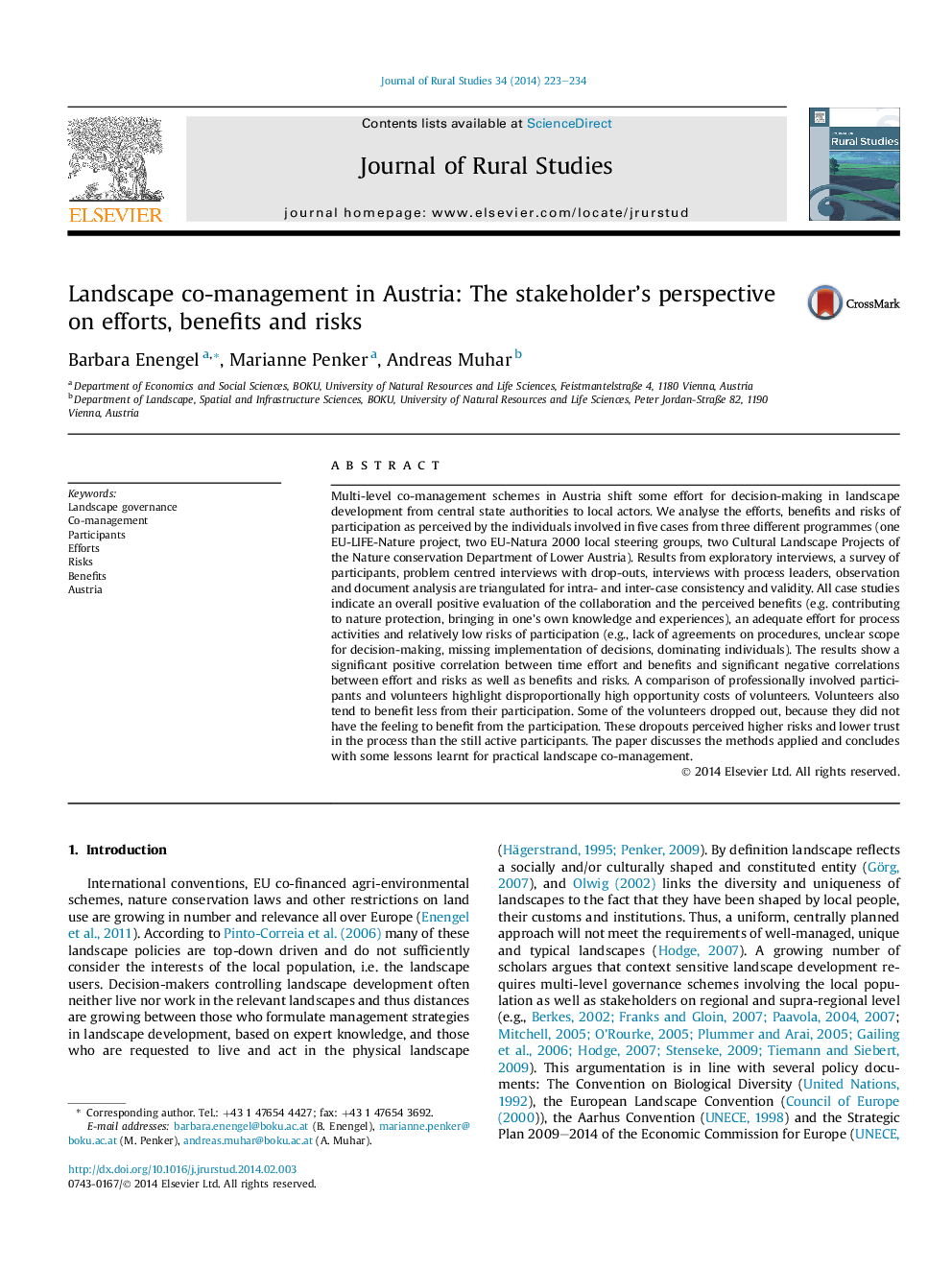| Article ID | Journal | Published Year | Pages | File Type |
|---|---|---|---|---|
| 6545829 | Journal of Rural Studies | 2014 | 12 Pages |
Abstract
Multi-level co-management schemes in Austria shift some effort for decision-making in landscape development from central state authorities to local actors. We analyse the efforts, benefits and risks of participation as perceived by the individuals involved in five cases from three different programmes (one EU-LIFE-Nature project, two EU-Natura 2000 local steering groups, two Cultural Landscape Projects of the Nature conservation Department of Lower Austria). Results from exploratory interviews, a survey of participants, problem centred interviews with drop-outs, interviews with process leaders, observation and document analysis are triangulated for intra- and inter-case consistency and validity. All case studies indicate an overall positive evaluation of the collaboration and the perceived benefits (e.g. contributing to nature protection, bringing in one's own knowledge and experiences), an adequate effort for process activities and relatively low risks of participation (e.g., lack of agreements on procedures, unclear scope for decision-making, missing implementation of decisions, dominating individuals). The results show a significant positive correlation between time effort and benefits and significant negative correlations between effort and risks as well as benefits and risks. A comparison of professionally involved participants and volunteers highlight disproportionally high opportunity costs of volunteers. Volunteers also tend to benefit less from their participation. Some of the volunteers dropped out, because they did not have the feeling to benefit from the participation. These dropouts perceived higher risks and lower trust in the process than the still active participants. The paper discusses the methods applied and concludes with some lessons learnt for practical landscape co-management.
Related Topics
Life Sciences
Agricultural and Biological Sciences
Forestry
Authors
Barbara Enengel, Marianne Penker, Andreas Muhar,
